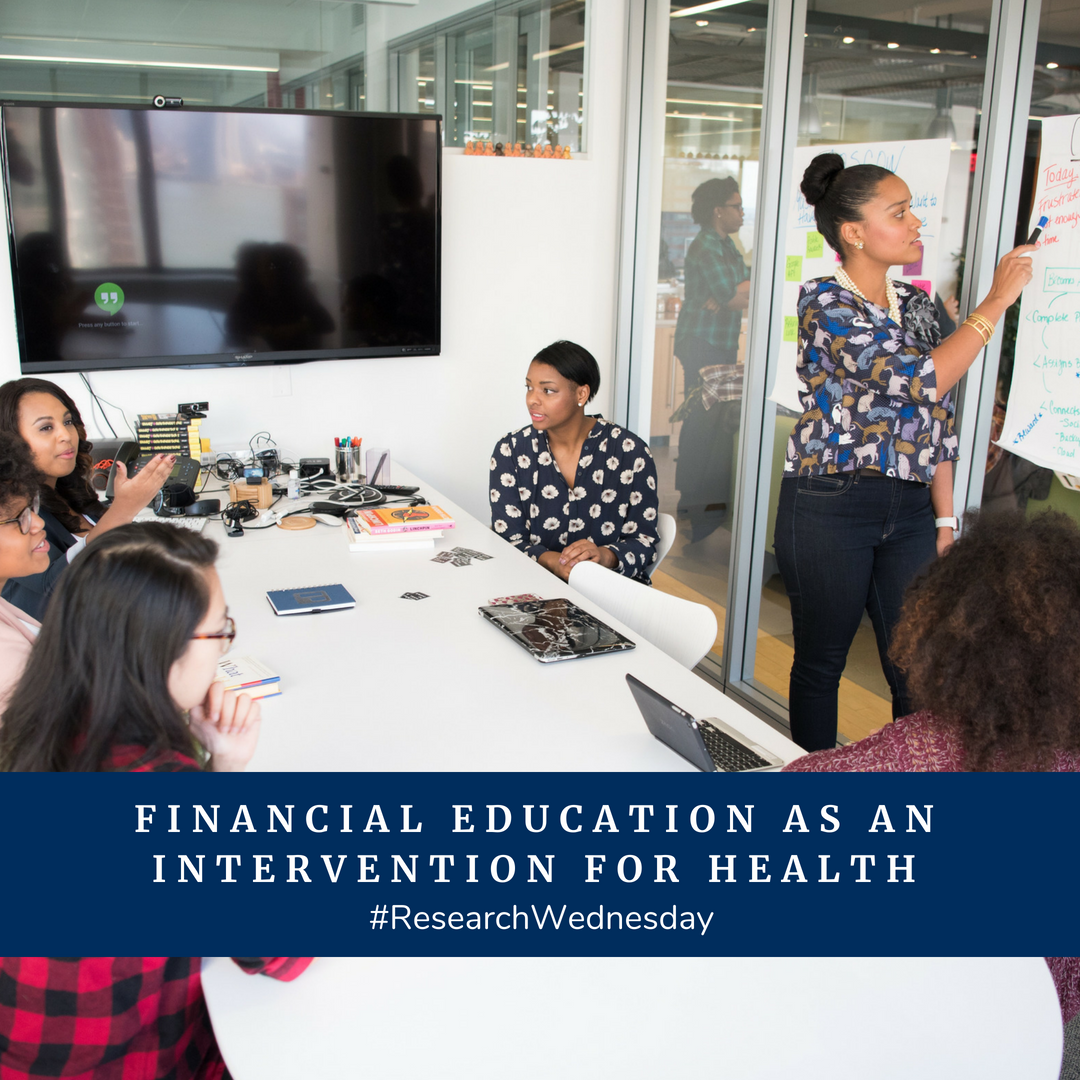Financial education programs may increase financial knowledge and improve financial behaviors, but a study at Creighton University found that financial education can also improve health. The study found significant improvements in health related quality of life that were sustained two years after participation in the education program.
Single, low-income women took part in the Financial Success Program that included nine weeks of in-class training, financial coaching and monthly group seminars for one year. Researchers followed-up with the women one and two years after the program ended. The women had less overdrawn bank accounts, shut off notices, payday lender usage, and late paid bill fees. A significant increase in mean annual income was also observed. At home and work, the women reported that they better managed how financial stress impacted sleeping, relationships, and ability to work. Half of the women lost weight and trends in decreased fast food consumption were observed.
“Women under financial stress are preoccupied with pressing budgetary concerns, not long term financial goals. Our study suggests financial education that addresses immediate financial issues reduces financial stress and assists women in making more advantageous financial and health-related choices” said Julie Kalkowski, Director of the Financial Hope Collaborative and study investigator.
The study is the first to use financial education as an intervention for health and has interesting implications for the fields of personal finance and healthcare. “The findings from the study support a more comprehensive approach to health and poverty alleviation. We envision health care providers screening for financial insecurity and referring patients for financial education” said Kalkowski. “Financial coaches can contribute to client wellness by addressing the social determinants of health, including financial stability.”
Continue the Conversation:
Tell us what you think in the comments below.
Download the research (available to AFCPE members or by request from the authors): White et al. (2018). Two Year Sustainability of the Effect of a Financial Education Program on the Health and Well-being of Single, Low-income Women. Journal of Financial Counseling and Planning (JFCP), 29(1).

Leave a Reply